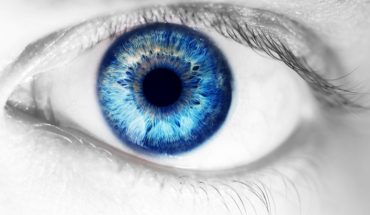Compulsive Buying Disorder – or shopping addiction – is a damaging behaviour and remains the occasional rather than the norm.
But increasing focus is being put on the inability to control spending impulses, partly due to new research in the journal Comprehensive Psychiatry suggesting it should be taken more seriously. Pamela Roberts, Addiction Therapy Manager at Priory’s Woking Hospital, says that sometimes, when people develop an ability to forego another addiction – say, alcoholism – other addictive behaviours come to the fore, such as shopping.
Of course, Black Friday for most people is not a problem. The same goes for other spending in the run-up to the festivities, and then the sales. But for the shopping addict, it’s different, says Pamela: “All rationale and reason around over-spending are overlooked for the short-term gain, ignoring the longer-term consequences.”
What to do?
Abstinence from shopping addiction doesn’t mean never shopping again, she says, “but it does mean establishing a plan to remain abstinent from addictive patterns.
“With alcohol or substances, it can seem easier – like locking a lion in a cage and throwing away the key. But with addictions like shopping addiction, you have to keep the lion – so to speak – safely in its cage, and every so often, take it out and restore it safely afterwards.
“12-step fellowship meetings (which follow the 12-step programme, created by the founders of Alcoholics Anonymous, to establish guidelines for the best way to overcome an addiction to alcohol) exist as support and also in treatment, and during therapy we support people to look at ways to develop what abstinence from the addiction there needs to be.
“Recovery from shopping addiction requires a long-term commitment, and events such as Black Friday are merely triggers to be managed differently.”
Some temporary recovery solutions
– Getting support (other shopping addicts, therapist, friends) from people who understand the sometimes overpowering urges
– Remove shopping apps
– Throw away leaflets dropped through the letterbox
– Have other interests planned before, during and after Black Friday
In the longer-term, she urges people to keep a log of every single penny spent and develop spending plans (not budgets). She say shopping addicts often fall into certain relationship types with money – indulgers, obsessors, deprivers and avoiders.
“Beginning to understand the relationships and drivers behind addiction are useful in establishing a longer-term recovery, and then ‘trigger’ events, such as Black Friday can be managed with some advance planning and establishing one’s individual way of maintaining recovery.” Dr Paul McLaren, Consultant Psychiatrist at the Priory’s Hayes Grove Hospital, and its Wellbeing Centres in Fenchurch Street and Harley Street in London, says he is seeing an increasing number of patients suffering from stress where debt is a component.
“The relationship between debt and psychological distress is complex. It is associated with many different mental illnesses both through cause and effect,” he says.
“The cost of buying property or renting, divorce, commuting and holiday costs, childcare, school fees, and the rising cost of living generally – all this can compete with trying to save for retirement. It can easily overwhelm, leaving people stressed out about money – stress that puts them at higher risk of lower-quality mental and physical health.
“Christmas overspending in particular can leave families with serious financial worries in January and February.”
He said there were many emotional and psychological responses people might experience as a result of credit card debt.
Shame, embarrassment, failure and self-blame are recurring issues where debt is at play. Patients who come to The Priory with debt issues often felt all of these about their situation, said Dr McLaren. They may also suffer from very low self-esteem or might have lost confidence in themselves altogether.
Because there are creditors involved in debt (and its collection), money issues can exacerbate the symptoms of depression or anxiety. This may, in turn, lead to alcohol or drug misuse. Debt, and overwork to reduce that debt, can create stress that gets in the way of sleep, exercise and relaxation.
Dr McLaren said: “The good news is that reducing debt and taking back control will have strong effects on your ability to remain calm and in emotional and physical balance. Many people find that eliminating the problem of debt gives them the chance to step back and think, ‘how much time am I devoting to the things in life that really matter to me, such as my interests, family, hobbies and personal development?’ People have got to prioritise their mental and physical health, their two most important assets, and cognitive behavioural therapy is just one method that can help those in distress.”
- Gut microbiome could delay onset of type 1 diabetes - 3rd April 2025
- The da Vinci 5 Robot Is Set To Transform Bariatric Care: - 31st March 2025
- Beyond money: the hidden drivers fuelling child food insecurity - 31st March 2025






